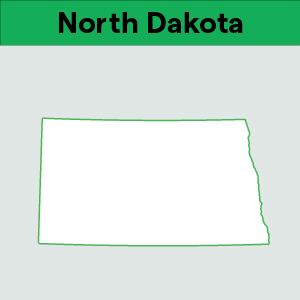Tennessee’s marketplace facilitator sales tax law, explained
by December 13, 2024
The state of Tennessee requires marketplaces to collect sales tax on behalf of sellers on online marketplaces like Amazon or Walmart.
This means that if you sell on a platform like Amazon, then Amazon will collect sales tax from your Tennessee buyers on your behalf, and remit it to the state.
But as usual, things can get a little complicated when it comes to eCommerce sales tax.
This post will explain what online sellers need to know about the Tennessee marketplace facilitator law, and answer your frequently asked questions.
Overview of the Tennessee marketplace facilitator law
Tennessee’s marketplace facilitator law states that marketplace facilitators who make or facilitate more than $100,000 in sales on behalf of 3rd party sellers to Tennessee customers in the previous 12 month period are required to collect Tennessee sales tax.
Quick facts about the Tennessee marketplace facilitator law
- Effective date: October 1, 2020
- Threshold: $100,000 in the past 12 months
- State law information: Read the full text of the Tennessee law (Public Chapter 646) here
Frequently asked questions about marketplace facilitator laws
What exactly is a marketplace facilitator in Tennessee?
Tennessee law defines marketplace facilitators as a “person, including any affiliate of that person, that:
(i) or consideration, regardless of whether characterized as feels from the transaction, contracts, or otherwise agrees with a marketplace seller to facilitate the sale of the marketplace seller’s tangible personal property or things or services taxable under this chapter through a physical or electronic marketplace operated, owned, or otherwise controlled by the person or the person’s affiliate; and
(ii) Either directly or indirectly through contracts, agreements, or other arrangements with third parties, collects the payment from the purchaser of the marketplace seller’s tangible personal property or things or services taxable under this chapter and transmits payment to the marketplace seller.”
Online sales platforms like Amazon and Walmart are considered marketplace facilitators under Tennessee law.
A software like Shopify or Magento that allows online sellers to build and manage their own stores would not be considered a marketplace facilitator.
Does this mean I can stop collecting Tennessee sales tax?
It depends. Every business’s sales tax situation is unique to that business.
Let’s look at a couple of common scenarios for businesses who have sales tax nexus in Tennessee.
Example #1: You only make sales on online marketplaces.
In this example, you only sell on Amazon and eBay. Because Amazon and eBay are both now collecting sales tax from buyers on your behalf, you are not required to collect sales tax from your buyers. (However, as a seller with nexus in the state, you will most likely still be required to file periodic sales tax returns. See “Does this mean I can cancel my Tennessee sales tax permit?” below.)
Example #2: You sell on online marketplaces and your own online store and/or brick and mortar store.
In this case, you’d still be required to collect sales tax from buyers who purchase from you through your own online store (for example, via your BigCommerce or SalesForce Commerce Cloud store). And you would still be required to collect sales tax from your brick and mortar customers.
Marketplace facilitator laws only cover marketplaces. The state still requires that merchants collect sales tax from buyers via sales channels where the marketplace facilitator laws do not apply.
Does this mean I can cancel my Tennessee sales tax permit?
Tennessee has answered this question in it’s Marketplace Facilitator FAQs, and here’s what the state has to say:
“Beginning October 1, 2020, a marketplace seller is not required to register as a dealer if all its taxable sales are facilitated by marketplace facilitators who are the retailers for purposes of those sales. However, if it makes any sales other than those facilitated by a marketplace facilitator, for example, through its own website, it may be required to be registered. For instance, if it has a physical presence in Tennessee or its own sales exceeds the $100,000 threshold.”
Tennessee’s marketplace facilitator law does not affect the sales tax registration requirements for existing sellers. So if you live or otherwise have sales tax nexus in Tennessee, then you are still required to hold a Tennessee sales tax permit. This also means you are still required to file sales tax returns on due dates set for you by the state.
Also, it’s important to assess your business before making a decision about cancelling sales tax permits. Are you in a growth stage? Do you plan to expand and think you may have Tennessee sales tax collection requirements in the future? Then you may want to hang on to your Tennessee sales tax permit rather than cancelling it and going through the administrative hassle of registering again in the future. This business decision is up to you.
Do I still need to file a Tennessee sales tax return?
If you are registered to collect sales tax in Tennessee (i.e. you have an active Tennessee sales tax permit) then the state still requires that you file sales tax returns.
If you only make sales via marketplaces, and all of your marketplaces collect sales tax from buyers on your behalf, then you may only be required to file a “zero return.” (This is a return showing that you do not have any sales tax to remit to the state.) Keep in mind that you can likely cancel your Tennessee sales tax permit if you only make sales via marketplaces. (See “Does this mean I can cancel my Tennessee sales tax permit?” above.)
If you no longer have any sales tax to remit to the state of Tennessee, we recommend checking directly with the state to determine if you can cancel your sales tax registration.
Be cautious here. If you are registered for a sales tax permit and do not file, the state can assess penalties even though you don’t have any sales tax to remit! We have, unfortunately, talked to too many sellers who have found this out the hard way when a tax penalty bill arrives.
What do I do with any Tennessee sales tax I have already collected?
If you have already collected Tennessee sales tax from buyers, it is vital that you remit that amount to the state. The only way to get in serious criminal trouble in sales tax is to collect sales tax from buyers on the state’s behalf but keep it in your own pocket.
Example:
Let’s say you sell on Amazon and Tennessee requires you to file and remit sales tax quarterly. Though Amazon began collecting sales tax on your behalf on October 1, 2020, if you have any sales tax in your bank account that you collected from Q3 2020, you will still need to remit that to the Tennessee Department of Revenue or face a penalty.
Does TaxJar handle this for me?
Yes.
TaxJar AutoFile handles Tennessee sales tax automatically
TaxJar AutoFile automatically compiles your sales tax data the way the state of Tennessee wants it filed. For example, many states, Tennessee included, want sellers to break down their sales tax collected interstate (sales originating in Tennessee sent to another state) and intrastate (sales made from Tennessee to Tennessee.)
If a marketplace has collected sales tax on your behalf, TaxJar reports that directly to the state so that the state is aware you have met your sales tax obligations.
If you currently AutoFile your Tennessee sales tax returns, you don’t need to do a thing. It’s handled!
TaxJar reports give you all the info you need to file manually
If you prefer to file manually, your TaxJar Reports also reflect what the Tennessee Department of Revenue wants to see on your tax return.
Also don’t worry that you will double pay. TaxJar accounts for sales tax collected on your behalf, and only shows you the amount you owe to the state out of your pocket.
Further reading on Tennessee sales tax and marketplace facilitator laws:
- TaxJar’s Marketplace Facilitator FAQ
- Marketplace Facilitator Laws Explained
- Tennessee Sales Tax Guide for Businesses








